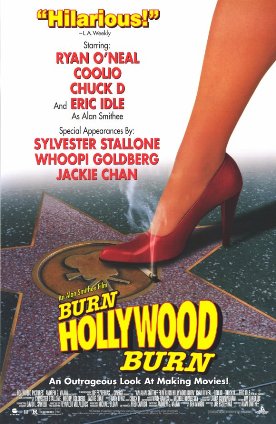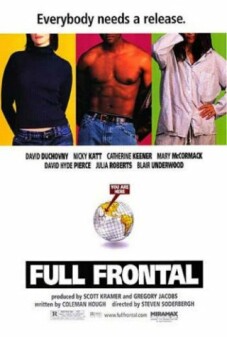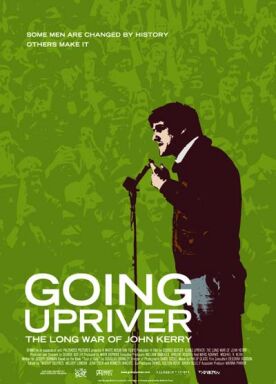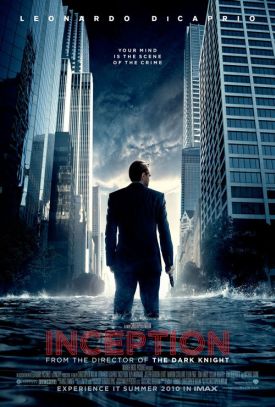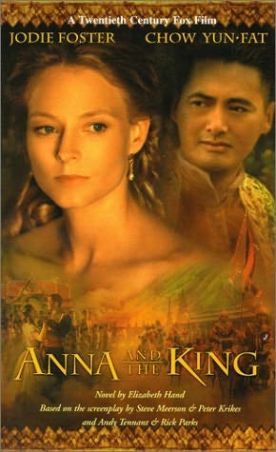Alan Smithee Film, An: Burn, Hollywood, Burn
An Alan Smithee Film: Burn, Hollywood, Burn, written and directed by super-screenwriter Joe Esterzhas, is that most painful of spectacles: Hollywood satirizing itself. Let us be clear: Hollywood likes nothing better than satirizing itself, and there is never any shortage of stars willing to do cameos and play up to their stereotypes in order to show what good sports they are. It is like the endless fascination of journalists with solemn self examination and only marginally more fun. It is also generated by a slightly different impulse. Journalists need to reassure themselves of their god-like status as arbiters of national morality and impartial reporters of “the truth” to “the people,” so a few well-placed but harmless self-criticisms are always helpful in keeping their self-esteem engines well-greased. Movie stars, however, are prisoners of the celebrity culture. They answer the philosopher’s question of what it is to live a virtuous life by saying that living the virtuous life is living so as to be a good talk-show guest—very rich, very pretty, very glamorous, and very nice and down-to-earth, which last quality the talk show, like the satire, itself allows them to demonstrate.
The story is that a super blockbuster movie called Trio starring Sylvester Stallone, Whoopi Goldberg and Jackie Chan has been taken away from its director, a mousy former editor called Alan Smithee (Eric Idle), and re-edited for commercial reasons into what everybody agrees is artistic “s***.” Smithee wants his name taken off the picture, but the rule is that when a director does that the film must be billed as having been directed by the Director’s Guild’s all-purpose pseudonym, which is—Alan Smithee!. What a comic premiss! Since he can’t, in effect, take his name off the picture, he takes the picture itself—its master negative—and burns it.
His two producers, James Edmunds (Ryan O’Neal) and Jerry Glover (Richard Jeni) desperately try to reach a last-minute deal with a couple of rappers from the ‘hood known as the Brothers Brothers (Coolio and Chuck D), stars of the hot movie You Ain’t No Brother, who are acting as Smithee’s agents, but they cannot agree. Once the film is burnt, however, the publicity for Smithee is boffo, and suddenly a biopic about him becomes the hottest property in town. The real life producer, Robert Evans (satirized by Dustin Hoffman in Wag the Dog) puts in his cameo appearance to bid against Edmunds and Glover for the rights to it, and the latter are put in the position of praising the artistic integrity of the man whom they have just been blackguarding for costing them $200 million. That’s Hollywood for you.
There are lots of by-ways involving the sex lives of all the major characters (including the spectacular miscasting of Sandra Bernhard as Glover’s very domestic little wife), but these are too embarrassing to go into. I guess in Hollywood they must be funny bits, but they didn’t work for me. I also couldn’t understand why the movie was divided into “acts” called “The Missionary Position”, “Whips and Chains” and “Doggie Style.” More Hollywood humor, I guess. It is one of many things which helps explain why Esterzhas’s Showgirls was such a disaster. Another one is the in-joke Estetzhas allows to be made about how Smithee’s picture is “even worse than Showgirls.” Even the biggest disasters, even the O.J. saga (and Robert Shapiro and Dominick Dunn make embarrassing cameos too), serve the purpose of humanizing those responsible. And that’s Hollywood too.
Discover more from James Bowman
Subscribe to get the latest posts to your email.

